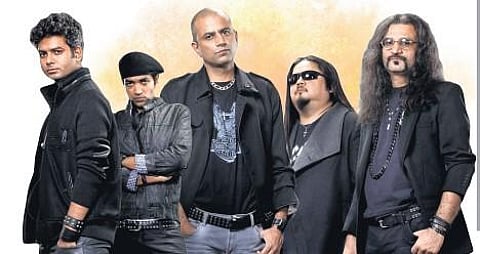

World Music Day marks a global appreciation for the art form and its profound impact on our lives. As technology continues to push boundaries, a topic of great interest among musicians is the integration of artificial intelligence (AI) in the world of music. Renowned musicians and experts share their insights, highlighting both the potential and ethical implications of AI in this ever-evolving industry.
Subir Malik, the founder and organist of the iconic rock band Parikrama acknowledges the dual nature of AI’s influence. He notes that while AI technology can streamline music creation, copying someone’s voice or music without consent raises ethical concerns. “At this stage, I believe AI can only serve as an inspiration and is not advanced enough to replace us,” he asserts.
Malik emphasises the importance of addressing ethical implications and ensuring that AI is used responsibly in the music industry. He adds, “I heard that Paul McCartney used John Lennon’s voice and is ready to release a song using AI. That seems great because the artist is using it for their release, which I find ethical.”
Many like Tarana Marwah, producer and singer, believe in leveraging AI to enhance music creation, rather than replacing human talent. “AI-driven consumption can help people tailor their playlists to their preferences. We often face problems with digital audio workstations (DAWs) and live recording setups. AI can assist in distribution and data analysis, helping artists reach their target audience,” Marwah explains.
However, Jashan Bhumkar, a classical singer and entrepreneur, holds a perspective grounded in the timeless nature of music. Bhumkaracknowledges that AI can offer unique combinations of melodies and rhythms, thanks to its ability to analyse vast amounts of data. But he emphasises that music’s essence lies in evoking emotion, challenging AI to capture the depth of human expression. He explains, “Any form of art is primarily about emotion. It is not merely an intellectual exercise. An intelligently composed melody is of little use if it fails to evoke emotion from the artist and stir emotions in the listener.”
Bodhisattwa Ghosh, guitarist and composer of The Bodhisattwa Trio, agrees to that. “Making music ultimately relies on the soul. Machines will never be able to create anything truly original and artistic, no matter how advanced the programs become. However, it can eliminate tedious tasks like programming and make the workflow easier, especially when working with electronic sounds.”
He cautions against becoming overly reliant on technology and highlights the importance of hard work and human creativity. Ghosh acknowledges his apprehension about the future impact of AI on music, wondering whether it will be a force for the better or worse. Despite his reservations, he acknowledges his intention to explore AI in his future projects.
While AI has the potential to facilitate various aspects of music production, the consensus among these
musicians is that the soul and creativity of music reside within the human experience. As the industry continues to navigate the ethical implications, it is clear that the future of AI in music holds both opportunities and challenges, offering a symphony of possibilities yet to be fully explored.